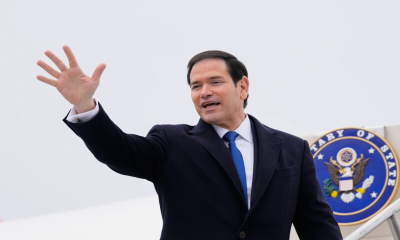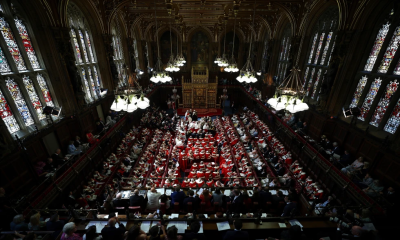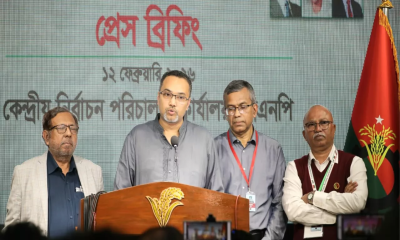Since the formation of the interim government, more has been said about reforms than in the past 54 years combined, Economist and former professor at Jahangirnagar University Anu Muhammad has said.
“Yet it still remains unclear exactly where and how such reform will take place,” he observed.
Speaking at a discussion at the Tofazzal Hossain Manik Miah Auditorium of the National Press Club on Friday, Professor Anu Muhammad made these remarks, reports Prothom Alo.
The event, marking the unveiling of the special issue, Antosimanto Nodi ebong Nodi Songskriti (Transboundary Rivers and River Culture), and a subsequent discussion, was held by the organisation Nongor Trust.
The event was supported by Waterkeeper Bangladesh, Riverine People, the River and Delta Research Centre (RDRC), the Centre for Atmospheric Pollution Studies (CAPS), the Turag River Protection Committee, and the River Protection Coalition.
Speaking on reform initiatives, Professor Anu Muhammad said, “It is still not clear to us precisely in which areas reform will take place, or in what manner. Only in relation to the Constitution have we seen some specific discussions on reform. Beyond this, we have not witnessed any genuine initiative on other matters. No reform commission concerning rivers has been established at all. Yet rivers are inseparable from our very existence – without them, we will cease to exist.”
The economist accused the government of failing to take any meaningful initiative on rivers.
“A simple task for the government,” he said, “would have been to involve those who work on river issues, to ratify the 1997 UN Watercourses Convention. But the government has failed to do that.”
He added that, although India has not signed the convention, Bangladesh should nevertheless do so.
According to Professor Anu Muhammad, India never wishes to engage in multilateral discussions on water sharing, and bilateral talks have seldom benefited Bangladesh.
He pointed out that Bangladesh’s success in delimiting its maritime boundary was achieved only through recourse to international law.
Thus, he argued, Bangladesh must seek alternative strategies to secure its rightful share of transboundary waters.
Speaking on India’s proposed inter-basin river-linking project, he observed that its adverse effects were being felt primarily by India’s own people.
“Indian experts opposed the Farakka Barrage,” he noted. “Now voices are being raised within India itself, calling for the dismantling of the Farakka Barrage.”
Professor Anu Muhammad recommended building solidarity and communication with anti-dam activists within India and exerting pressure on India’s ruling class through such alliances.
3 causes of river degradation
The economist identified three principal causes of river degradation in Bangladesh. Those are: Indian aggression against rivers, river-destroying development projects within Bangladesh itself, and encroachment and pollution by powerful individuals and vested interests.
“Even if there’s no climate change,” he stressed, “numerous destructive projects have been undertaken within the country to serve the interests of the powerful, wreaking devastation on our rivers.”
Call for National River Day and a ministry of river resources
On behalf of Nongor, Chairman Suman Shams presented a concept paper and proposals for river protection.
He called for the declaration of 23 May as National River Day and the establishment of a Ministry of River Resources.
Explaining the necessity of such a ministry, Suman Shams said it was vital to overcome lack of coordination, prevent encroachment and pollution, ensure accountability, and deal with international water-sharing agreements.
40 rivers could be discussed with India
River researcher Mahbub Siddiqui remarked that India is not standing on moral ground when it comes to water sharing.
He claimed that while the official count of transboundary rivers stands at 54, his field research has identified 215 rivers in reality. Among these, he found 40 rivers which either flow from Bangladesh to India, or from India into Bangladesh and then back into India.
“Bangladesh could exert influence on India by raising the issue of these 40 rivers,” he suggested. “However, no physical structures should be built on rivers, as that would raise a moral question for Bangladesh internationally.”
Environmental activist and human rights campaigner Sharif Jamil said, “When it comes to shared rivers, any intervention should be made only through dialogue with the partner countries. In a civilised society, no plan can be executed without discussion.”
Joining the discussion via mobile phone, Professor Manzoorul Kibria of the Department of Zoology at the University of Chittagong said, “Our primary but crucial task is to determine the actual number of rivers. In particular, we do not know how many rivers exist in the Chittagong Hill Tracts and in the Sundarbans. This should be a priority.”
Sharmila Khanam, joint director of the Bangladesh Inland Water Transport Authority (BIWTA), observed that while policy requires a navigability of 2.5 metres in rivers, in reality most Bangladeshi rivers have less than one metre.
She emphasised the need for coordinated efforts from all sectors to address this.
Other speakers included river researcher and writer Irene Sultana, Professor Kamaruzzaman Majumder, river and inland waterway specialist Tofayel Ahmed, Dhaka University deputy registrar Nazir Ahmad, haor region activist Jakia Shishir, and Riverine People’s general secretary Sheikh Rokon, among others.


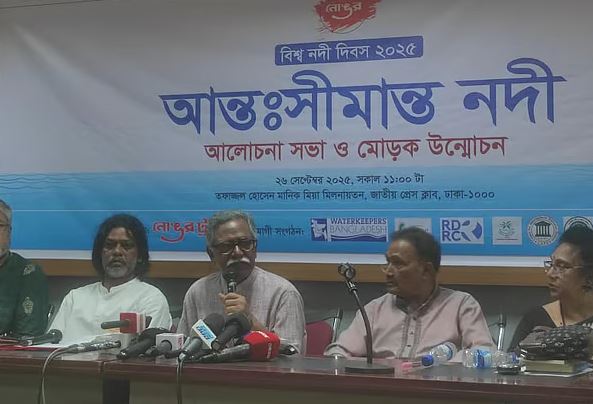



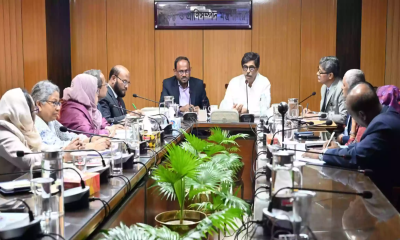
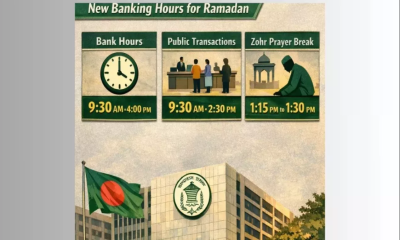
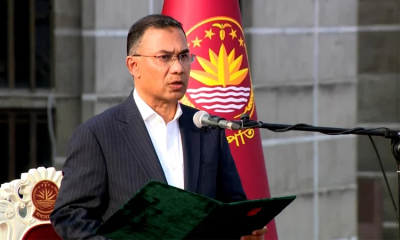

-20260219054530.webp)

